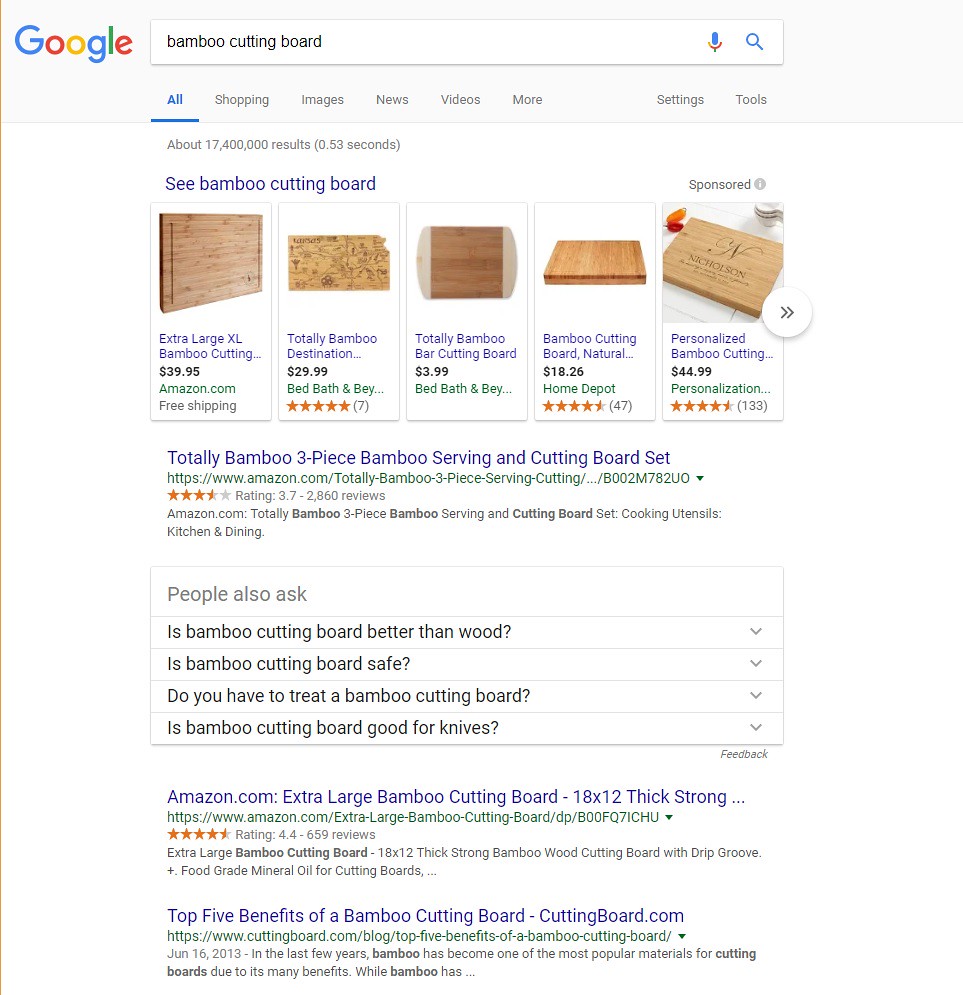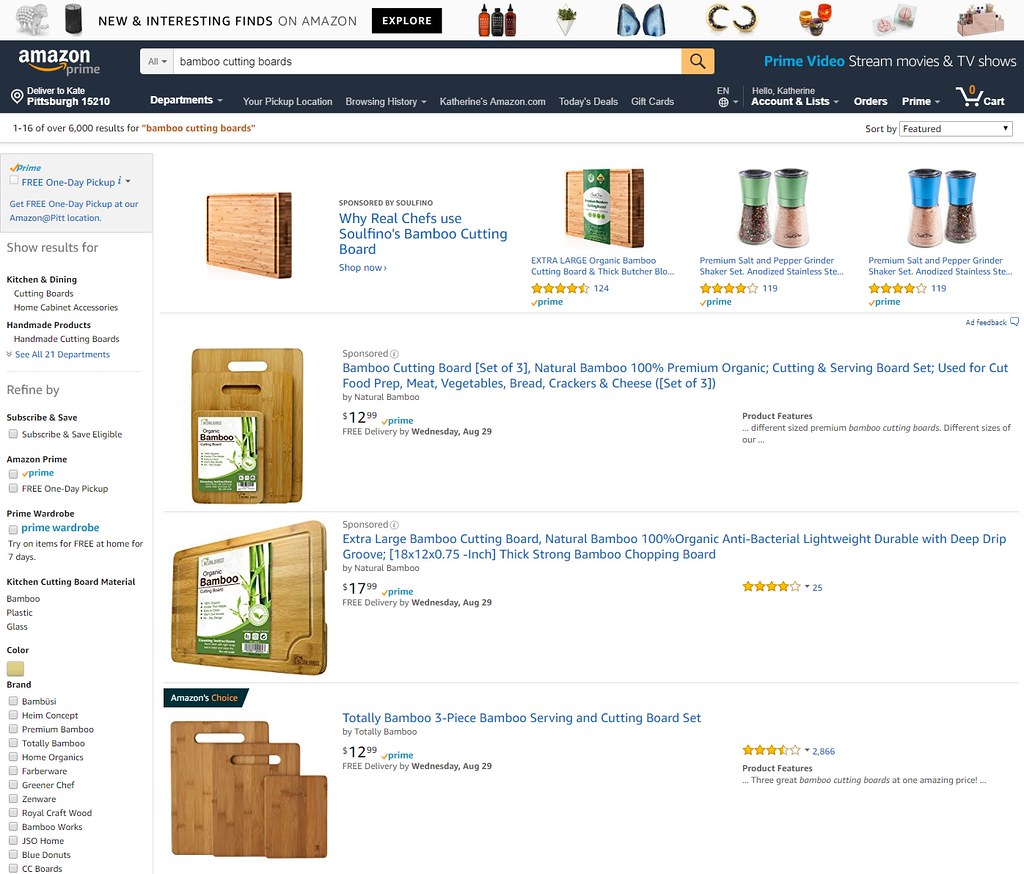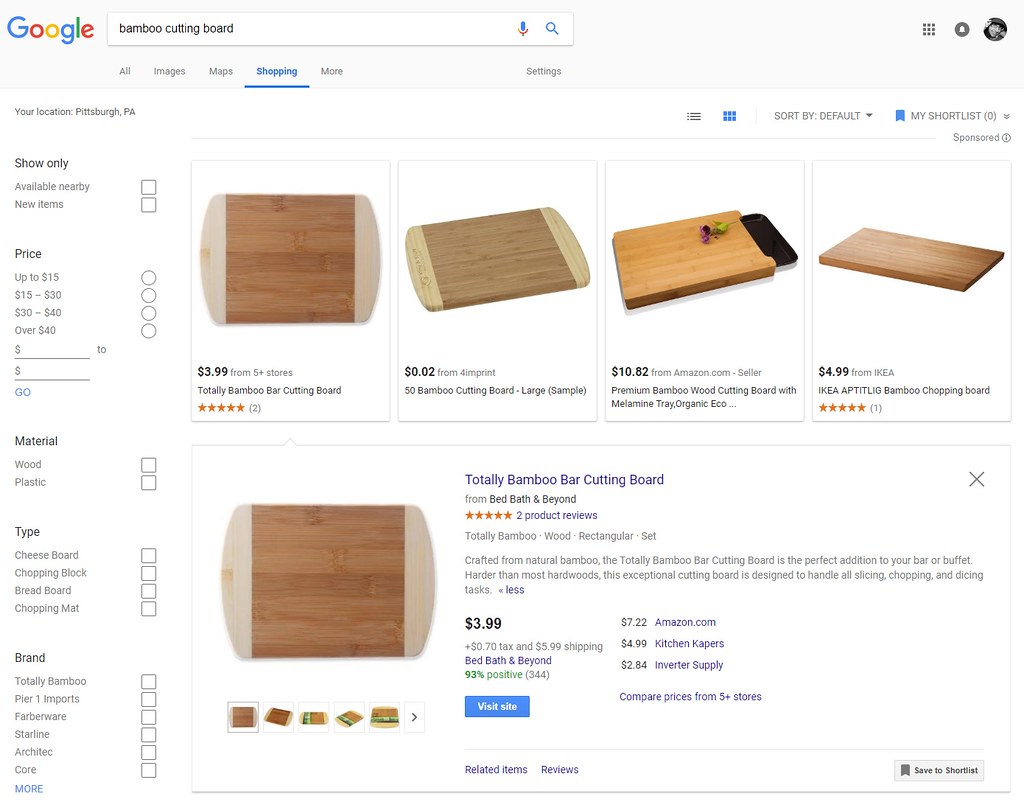Search engine optimization is essential for any online business, but particularly for online retailers. With so many retail options out there, you need to set yourself apart and provide your customers with a usable online interface. Keep reading to receive the top 6 simple SEO tips for online retailers.
Why Is SEO Important for Ecommerce?
As you are undoubtedly familiar with, search engine optimization (SEO) is the process of generating traffic from search engines like Google and Yahoo. SEO strategies can either help or hurt your business by influencing where your site falls on the search engine results page (SERP). For ecommerce, you have to compete with other businesses as well as paid advertisements.
But why is SEO so important? Because fewer than 5% of searchers ever go to the second page of search results. This means that if you aren’t within the top 10 listings on the SERP, you’re probably going to be missing out on traffic and that means fewer sales.

Not only does a strong SEO strategy drive traffic to your website and boost potential sales, but it could actually reduce your overhead as well. Studies show that small- to medium-sized businesses (including ecommerce sites) devote more than 12% of their total revenue toward digital marketing. A significant portion of that money goes to paid advertisements but if you improve the SEO for your total site instead, you could end up reaping greater results at a lower cost.
Paid advertisements are an important part of any ecommerce strategy and they may work to boost traffic and expand your target audience, but it won’t do anything for your organic search results and your page ranking. Once your ad campaign ends, your site will go right back to where it was.
The Top 6 SEO Tips for Ecommerce Sites
Hopefully by now you have a better understanding of why a strong SEO strategy is so important for online retailers and other ecommerce sites. Now, let’s take a look at the top 6 tips for improving SEO on ecommerce websites:
1. Start with Strong Keyword Research
Though you should avoid stuffing your site with keywords, identifying high-value keywords and optimizing your site for those keywords is the backbone of any strong SEO strategy. You already have a business and a product, so all you really need to do is find the right combination of words and phrases that fit your products but also have high value in online search results.
One way to identify keywords with high value is to simply type in the words that describe your products into Google and see what comes up. You’ll be able to see how other retailers are advertising their products to get some ideas. You should also check the related search queries at the bottom of the page. You can do a similar thing on Amazon if you want to avoid purely information sites entirely.
2. Be Careful How You Organize Your Site
When it comes to SEO, it doesn’t particularly matter whether you have an informational site or an ecommerce site – you’re still optimizing for specific keywords. As for the organization of your site, however, things should be a little different. The organization of your site impacts your user experience which also has an influence on your site rankings. You want to make it easy for your customers to find and purchase the products they’re looking for.
Not only should your site be usable and easy to understand, but it should be scalable as well. It is better to start off small and simple with a usable site structure that you can build on than to make changes as you grow – this will only complicate things when it comes to SEO and SERP rankings. To get some ideas for how to organize your site, search for competitors in your product category and spend some time exploring their sites to see what does and doesn’t work.

3. Don’t Forget to Optimize for Mobile Use
It wasn’t too long ago that, in order to reach a retail business’s website, you had to actually type the URL into the search bar. Now, all you have to do is type a few words describing what you’re looking for into the Google search bar and you’ll receive links to dozens (or hundreds) of ecommerce websites. Not only has this change had a significant impact on online businesses, but improvements in mobile technology have incited change as well.
If you want your retail business to succeed online, you have to optimize for mobile users or you’ll be ignoring a huge chunk of your target audience. According to recent research, 63% of millennials shop using their smartphones on a daily basis. Some simple things you should do when optimizing for mobile is turning off pop-ups and making sure everything is mobile-responsive. To see how your site stacks up, use an online tool like HubSpot’s Website Grader to measure your performance for both speed and SEO.
4. Write Great Product Descriptions
If your site is ecommerce only, you may not have a lot of content to optimize for SEO. Rather than filling your site with unusable content that simply clutters things up, take advantage of the opportunities you already have to create quality content – namely, your product descriptions. Even if the product seems self-explanatory or obvious, creating an entertaining or well-crafted product description can really boost your SEO.
To make the most of your product descriptions, be sure to include those keywords you chose earlier. Don’t go on and on about the product but create a detailed description for each product using those keywords. You should also make smart use of alt text for images every chance you get and make sure to keep your product descriptions updated and relevant for the best SEO rankings.

5. Encourage Customers to Leave Reviews
Another simple way to beef up the content on your website is to encourage your customers to write reviews of your products. These reviews count as content on your site and the bonus is that you don’t have to write it yourself! Encouraging your customers to leave reviews is a simple (and free) way to generate relevant text that can help boost your search results.
How do you encourage your customers to leave reviews? Many ecommerce sites offer a discount on future purchases in exchange for leaving a review. You could also consider a point system in which you earn points for interacting with the brand on different levels (such as sharing on social media, posting a picture, or leaving a review). Make this part of your overarching digital marketing and SEO strategy for the best results.
6. Use Your Catalog Wisely
Many ecommerce websites offer PDF product catalogs in addition to their online shopping pages. While it may seem like this is completely unrelated to SEO, it’s actually a great opportunity to add more text to your site. As long as you create the catalog as a text-based PDF rather than designing it in an image-based program, Google will have text to read to determine SERP rankings.
To make the most of your PDF catalog, you should optimize it in the same way you would optimize an HTML page by incorporating your keywords into the headlines, copy, and descriptions. You should also make sure that the file isn’t too large that it discourages people from downloading it or causes them to abandon the PDF before they actually get it to open. And don’t forget to complete all of the document properties on your site, especially the title of the document.
Search engine optimization is essential for any online business, but particularly for ecommerce sites and online retailers. Like any online business, you’ll need to optimize your site to reach as many potential customers as possible in order to maximize your sales. Good luck!
